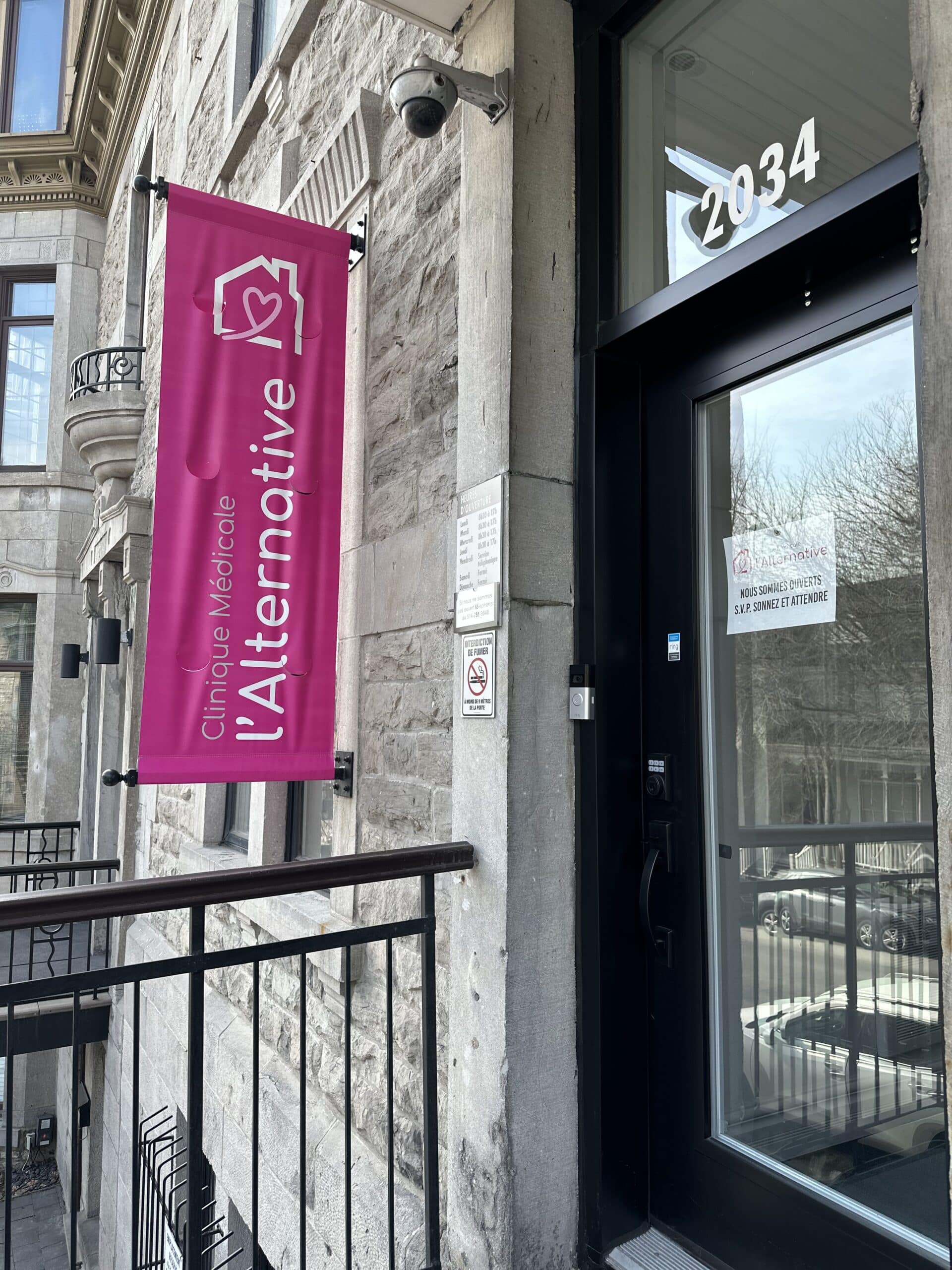
Presentation
A surgical abortion does not require any incisions, it is an voluntary interruption of the pregnancy where the fetus and placenta is removed by an intervention done in 3 steps: Dilation, aspiration, and curettage. This technique is the most practiced and very safe.
Surgical abortion requires a single appointment and takes one hour (from arrival to leaving the premises).
Steps
As was mentioned above, the meeting with the intervener aims at supporting you in your choice, not to judge the reasons that motivate your decision. The meeting is not a psychological evaluation but to listen respectfully in the most attentive way.
A urinary pregnancy test will be done at your arrival and the intervener will revise with you the questionnaire filled.
An explanation for the two types of abortion offered at the clinic will be provided: Surgical abortion and Medical abortion. The choice will depend on the patient but also of how far along the pregnancy is and certain other conditions. Furthermore, you will be able to discuss with the intervener if the different methods of contraception offered. Please keep in mind that no matter what is the choice made, our medical clinic will support throughout the whole process.
The meeting with the intervener will be done on a one on one bases, in order to for you to be at ease to ask questions and discuss of all your worries in total freedom. If you want to be accompanied for the procedure, please mention this to the intervener during the meeting.
The nurse will lead you to the doctor for the surgical abortion. She will stay with you until the end of the procedure which will take approximately 10 to 15 minutes.
The nurse will put in place a small tube on your arm’s vein (catheter), it will be use to inject medication for your comfort.
The doctor will follow these steps:
You will be able to comfortably rest in a bed for the duration of 30 to 40 minutes.
We will provide water to hydrate and it will also help recuperate faster.
The nurse will verify your bleeding in order to make sure they are light, some patients can experience no bleeding at all.
Information and tips on the aftermath of the abortion will be given along with prescriptions and medications if necessary.
After a good rest, we will make sure that the patient is in capacity to leave the premises and return home.
It is legally forbidden to drive a car after the intake of intravenous solutions (fentanyl/versed) for a period of 24h.
After
It is strongly suggested to take the day to rest after the surgical abortion. It necessary, the doctor can remit a medical note for the missed work or school.
You can go back to your regular activities as soon as the next but strongly recommended to avoid sports or intensive physical activities for 7 days.
Sexual activities can be resumed after 7 full days after the surgical abortion. Avoid all vaginal penetrations after the first week of the abortion.
It is possible to get pregnant after 7 to 10 days after the abortion even if there is still bleeding therefore we recommend protected sex by using different contraceptive methods.
Some patients can take several week before being ready and comfortable to have sexual intercourse. Take the time needed.
7 full days is needed after surgical abortion before sexual intercourse with penetration. After the abortion, sexual desire can be reduced or absent, it is normal. Take the time needed to retrieve your sexual desire in order to have a satisfying sexual life. Method of contraception should start as prescribe by the doctor.
Your menstrual cycle will come back little by little. Your next periods should come 4 to 8 weeks after the procedure. Bleeding can be more abundant with blood clots or brownish vaginal loss followed by abdominal cramps as your first menstrual cycle.
Cervix is open and will close slowly therefore there are infection risks.
Do not insert anything in the vagina for 7 days.
Use hygienic pads for the first 7 days after the abortion. No tampons or menstrual cup is allowed.
Showers or bath are allowed but do not use public swimming pools, lake, or spas after the first week of abortion.
No vaginal shower for the first 7 days after abortion.
Step 1
It is rare to have significant pain but if necessary, the first 48h after the procedure, you can take 2 caplet of ibuprofen of 200mg (Advil or Motrin) every 4h.
Or
Intake 2 caplets of acetaminophen (Tylenol) of 325mg every 4h.
Or
Intake 2 caplets of acetaminophen (Tylenol) of 500mg every 6h
Apply heat (Magic bean bag) on your abdomen.
Step 2
If you are still not relieved, alternate Advil and Tylenol every 2h.
Bleeding varies from one woman to another. Some can have no bleeding whereas some can have bleeding right after the procedure up to three weeks.
In certain cases, intermittent bleeding or spotting can happen.
Blood clots, abdominal cramps can surface within 4 to 6 days after the pregnancy interruption.
Risks of complication after a surgical abortion are rare.
If you have one or a few of the following signs present yourself to the emergency or contact us:
If any of these measure does not relieve the symptoms, you can reach us:
6 weeks after the surgical abortion, you will be asked to proceed to a home urinary pregnancy test. If the result is positive call the clinic at this number : (514) 281-6476.
Our approach
*If you do not have the Quebec Medicare card or access to the Blue Cross program, contact us to find the applicable cost/fees.

Support
If you need psychological support or if you need to consult a website to help you through the process of initiating a pregnancy interruption, please refer to the following resources.
1100, avenue Beaumont, bureau 510
Mont-Royal (Québec), H3P 3H5
(514) 738-1223
1-800-561-1223
info@ordrepsy.qc.ca
79 Rue Beaubien Est
Montréal, Québec, H2S 1R1
(514) 271-0554
info@grossesse-secours.org

Other services

Medical abortion is a pregnancy interruption done through medications. It is available up until 63th day (9 weeks) of pregnancy counted from the first day of the last menstrual cycle.
En savoir plusFor all questions